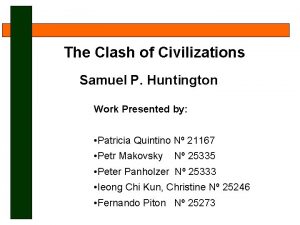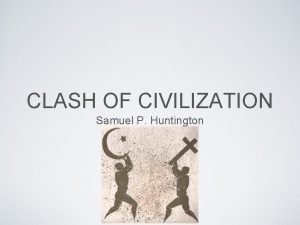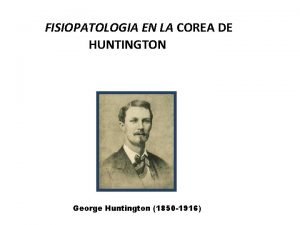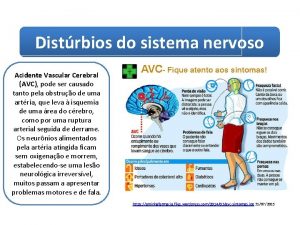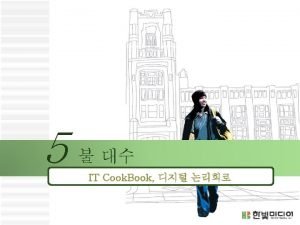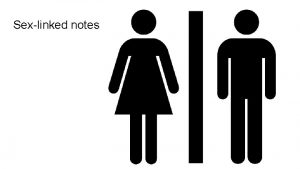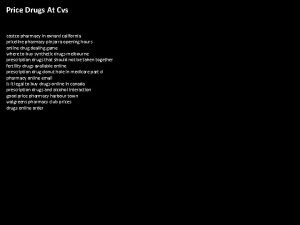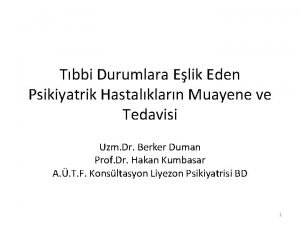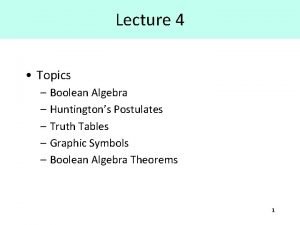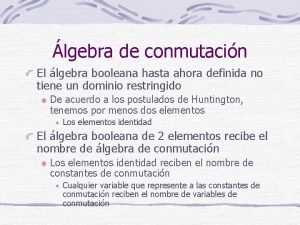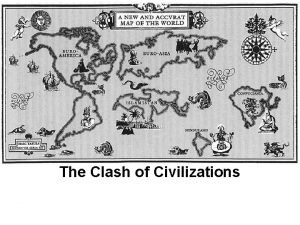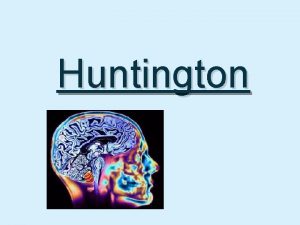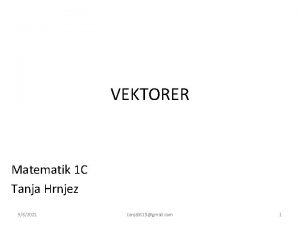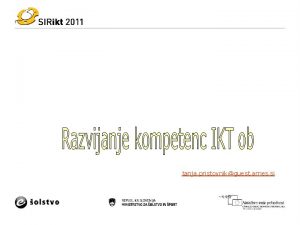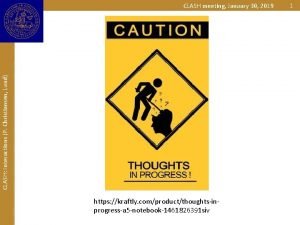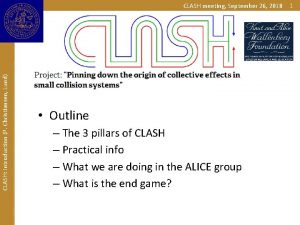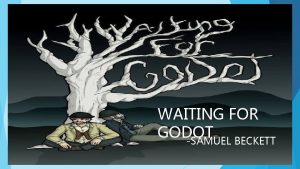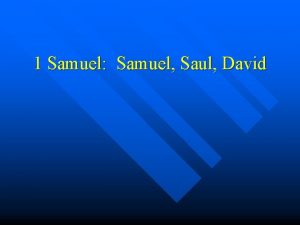THE CLASH OF CIVILIZATIONS Samuel P Huntington Tanja














- Slides: 14

THE CLASH OF CIVILIZATIONS Samuel P. Huntington Tanja Hajdinjak

CONTENT p Presentation of article (slide 3 -10) p Questions during the reading (slide 11) p Critiques of the article (slide 12) p Questions for debate (slide 13)

Source of conflict Hypothesis: conflict is not ideological or economic, great division among humankind and the dominating source of conflict will be cultural. p National states will remain the most powerful actors, principal conflict will occur between nations and groups of different civilizations. p The clash of civilizations will dominate global politics. p

Why civilizations will clash? p Civilization identity will be important in the future. p 7 or 8 major civilizations (Western, Confucian, Japanese, Islamic, Hindu, Slavic-Orthodox, Latin American, possibly African).

Reasons for Clash p p p Civilization defer by history, language, culture, tradition, most important religion. World is becoming smaller place. Economic modernization and social change throughout the world are separating people from longstanding local identities. Growth of civilization-consciousness is greater due to dual role of the West. Cultural characteristics and differences are less mutable and less easily compromised and resolved than political and economic ones. Economic regionalism is increasing.

Clash p It will occur at two levels: 1. Micro level 2. Macro level

Fault Lines between Civilizations Fault lines between civilizations are replacing the political and ideological boundaries of the Cold War as the flash point (point where violence occurs) for crisis and bloodshed. p Ideological division of Europe has disappeared, the cultural division of Europe between Western Christianity, on one hand, and Orthodox Christianity and Islam, on the other hand, has reemerged. p

The West vs the Rest p p p West at the peak of power. Decisions made at UN Security Council or IMF (International Monetary Fund) reflect interests of West and are presented as the desire of the world community. West is using international institutions, military power and economic resources to run the world in ways that will maintain western predominance, protect Western interests and promote western political and economic values (this is the way non -Westerners see the new world-there is significant element of true in their view).

The West vs. the Rest p 2 sources of conflict between West and other civilizations: 1. Difference in power and struggles for military, economic and institutional power. 2. Basic values and beliefs.

The West vs. the Rest p 1. 2. 3. p p p 3 responses of non-Western civilizations to western power and values: Isolation (isolate country from the West). Bandwagoning (attempt to join the West and accept its values and institutions). Balance (to modernize but not to Westernize). West should maintain the economic and military power necessary to protect its interests in relation to other civilizations. West should develop profound understanding of religious and philosophical assumptions underlying other civilizations. There will be no universal civilization, but a world of different civilizations, each of which will have to learn to coexist with the other.

Questions during the reading p How does the author define civilization (on what terms and attributes)? p Does he sees Turkey as possible European country? p Does he consider Europe and Chine as opponents to Western power?

Critique Most of the critiques go to the definition of civilization and to the historical part of the article. p Prof. John Esposito: countries have clashed with countries, not civilizations or religions (e. g. American military action in Afghanistan or Iraq is not a civilization conflict; NATO attacking Yugoslavia which is Christian country, to save Muslims of Kosovo). p

Questions p Do you agree with Huntington that today's conflicts are rooted in civilization clash? + argumentation of answer

THANK YOU FOR YOUR PATIENCE
 Clash of civilizations huntington
Clash of civilizations huntington Clash of civilizations huntington
Clash of civilizations huntington Samuel huntington biographie
Samuel huntington biographie Samuel huntington
Samuel huntington Samuel habla señor que tu siervo escucha
Samuel habla señor que tu siervo escucha George huntington
George huntington Doença de huntington
Doença de huntington Huntington postulates
Huntington postulates Is down syndrome autosomal or sexlinked
Is down syndrome autosomal or sexlinked Modafinil price costco
Modafinil price costco Doç dr berker duman
Doç dr berker duman Huntington postulates of boolean algebra
Huntington postulates of boolean algebra Postulados de huntington
Postulados de huntington Athletic clearance.com login
Athletic clearance.com login Francesca turchetti
Francesca turchetti

